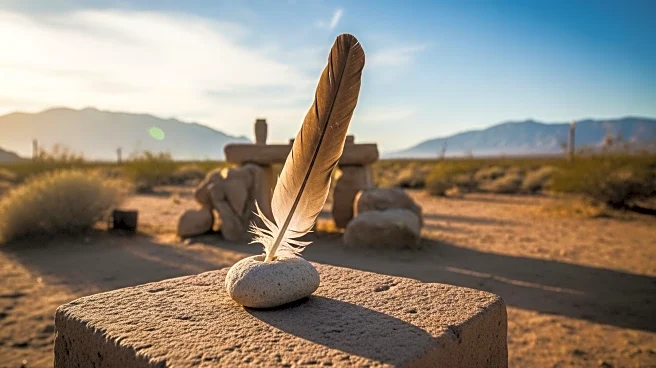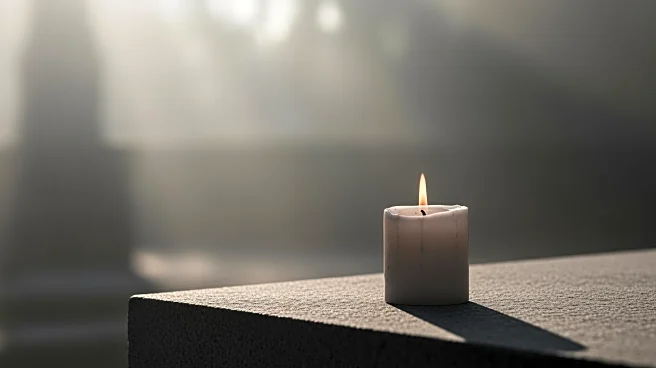What is the story about?
What's Happening?
The U.S. Supreme Court has denied a rehearing of the case filed by Apache Stronghold, which sought to prevent the sale of Oak Flat, a sacred site for Native American groups, to Resolution Copper, a mining company. The decision follows a previous refusal by the court to hear the case in May, with Justices Neil Gorsuch and Clarence Thomas dissenting. The Apache Stronghold argued that the sale violates the Religious Freedom Restoration Act, but the court's denial likely marks the end of their legal efforts to protect the site. Despite the setback, Apache Stronghold has vowed to continue fighting in lower courts, supported by the US Conference of Catholic Bishops and the Knights of Columbus, who argue that the sale represents a misunderstanding of religious freedom law.
Why It's Important?
The Supreme Court's decision has significant implications for religious freedom and indigenous rights in the U.S. The ruling allows the sale and potential destruction of Oak Flat, a site of cultural and religious importance to the Apache and other Native American groups. This decision could set a precedent for how religious freedom laws are interpreted in cases involving indigenous sacred sites. The mining operation by Resolution Copper could lead to economic benefits, but it also raises concerns about the preservation of cultural heritage and environmental impacts. The case highlights ongoing tensions between economic development and the protection of indigenous rights.
What's Next?
Apache Stronghold plans to continue its legal battle in lower courts, seeking to protect Oak Flat from mining activities. The ongoing dispute may involve further legal challenges and public advocacy efforts to raise awareness about the cultural significance of the site. The decision could prompt discussions among lawmakers and civil society groups about the need for stronger protections for indigenous sacred sites under U.S. law. The involvement of major Catholic organizations may also influence public opinion and policy discussions on religious freedom and indigenous rights.
Beyond the Headlines
The case underscores broader issues of religious freedom and indigenous rights in the U.S., highlighting the challenges faced by Native American groups in protecting their cultural heritage. The legal battle over Oak Flat may influence future policy decisions and legal interpretations regarding the balance between economic interests and the preservation of sacred sites. The involvement of religious organizations in supporting indigenous rights could lead to increased collaboration and advocacy efforts across different communities.














